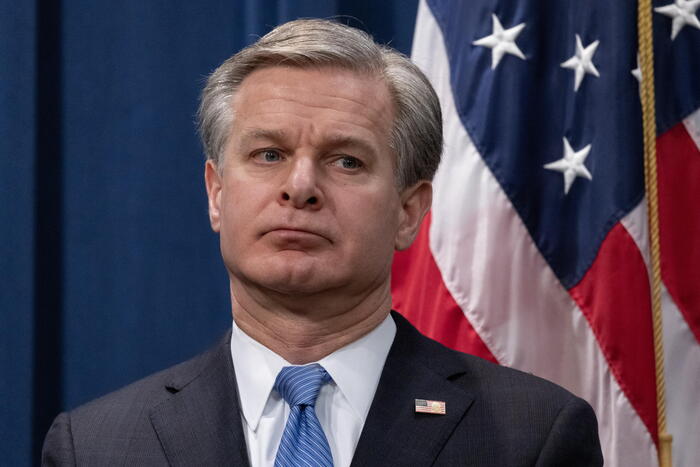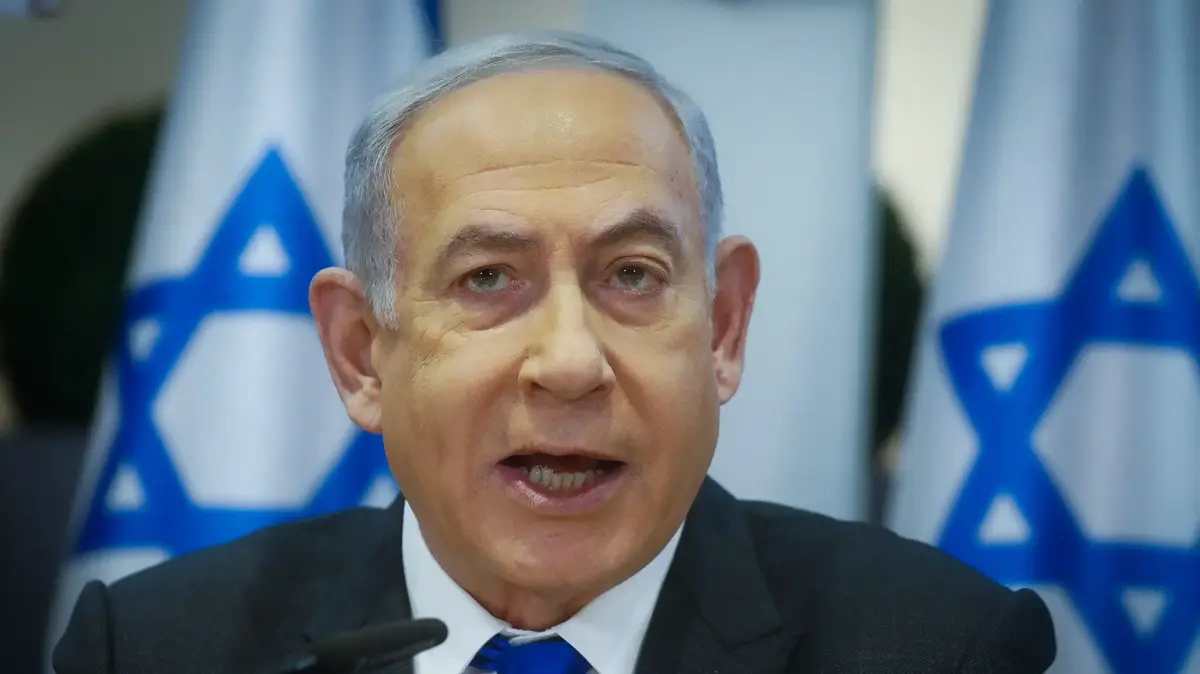By Ken Dilanian - NBC News
The Department of Homeland Security (DHS) has launched a strategy to collect and analyze data on social media posts that allegedly threaten public safety, federal officials have reported.
The objective is to build a warning system to detect the type of publications such as those that preceded the attack on the Capitol on January 6, which were ignored or ignored by intelligence agencies and law enforcement agencies.
[Biden confirms that the refugee limit will increase to 62,500 after criticism for maintaining the quota set by Trump]
The focus will not be on the identity of the users, but rather on collecting potential threats based on emerging narratives and complaints.
So far, DHS is using people and not computer algorithms to make sense of the data, according to the same sources.
"We are not looking at who publishes the individual posters," explained a senior official involved in the initiative,
"we are looking at what narratives resonate and spread across the platforms
. From there, it is possible that we can determine what the objectives are. potentials to protect ".
Officials did not describe what criteria or methods the analysts would use to examine the data.
DHS has been consulting with social media companies, private companies, and nonprofit groups that analyze open source social media data.
"Violent domestic extremism represents the most deadly and persistent terrorism-related threat to our homeland,"
said Sarah Peck, a spokeswoman for DHS, adding that all of the agency's efforts against the threat "are carried out in close coordination with our privacy, civil rights and civil liberties experts and in accordance with the law. "
[Biden recognizes as genocide the massacre of more than a million Armenians committed by the Ottoman Turks at the beginning of the 20th century]
Law enforcement officers and intelligence analysts have the legal right to examine, without a warrant, what people openly say on Twitter, Facebook, and other public social media forums, just as they can obtain information from reading newspapers. .
But civil liberties groups generally oppose government monitoring of social media, arguing that it doesn't produce much information and risks chilling free speech.
"Internal government reviews have repeatedly raised concerns about the usefulness of a broad collection of information from social media, but agencies continue to move forward, wrongly assuming that its benefits must outweigh its costs," said Hugh Handeyside, a lawyer for the United States Union. of Civil Liberties in Washington.
"People say inflammatory things on social media, but as an empirical matter, that speech is not a valid or reliable predictor of violent behavior," he added.
Handeyside noted that the White House budget office blocked a DHS proposal in July to collect information from social media on visa applicants, saying the agency "has not adequately demonstrated the practical utility of collecting this information."
[Republican Senator Claims Democrats "are separating more" the country in response to Biden's speech]
In terms of freedom of expression, he said, "when people know that the government is watching, they censor themselves."
"This leads to the suppression of ideas and speeches that could be considered controversial," he said.
Biden's first 100 days in office: between the promises kept and the challenges to be achieved
April 28, 202103: 09
DHS officials say the case for counterterrorism to analyze social media is strong and they believe these platforms can be a useful predictor of threats.
Other experts agree.
Concerns about government meddling with free speech are legitimate, according to Oren Segal, vice president of the Anti-Defamation League's Center for Extremism, but the federal government can hardly ignore the main vector of extremist communication in the United States.
"The narratives that encourage people to action are online," he said, "that is why the insurrection was predictable from our point of view, because planning and organizing were happening in one simple place. It is not an issue. easy, but one thing we all agree on is that in order to stop the next threat sooner, it is necessary to go to spaces where extremists are present. "
Many social media posts are made anonymously and, in some cases, a court order signed by judges would be required for the government to obtain records
revealing the identity of the person who made the post.
DHS officials said it would be the FBI's responsibility in a criminal investigation.
DHS's goal is to exploit social media for tips, leads and trends, according to officials.
For example, in the weeks following the January 6 riot, DHS and other agencies observed a high volume of conversations on social media promising more violence on Capitol Hill and surrounding the inauguration of President Joe Biden, according to officials.
That prompted authorities to expand and extend a massive security presence, including National Guard troops and fences, which appears to have deterred potential violent protesters.
In testimony late last month before the House of Representatives, John Cohen, undersecretary of Homeland Security against Terrorism, explained that DHS planned "a greater analytical approach to more comprehensively assess how violent extremist actors and other perpetrators of targeted violence exploit and take advantage of social media and other online platforms and how those activities are linked to real-world violence. "
[This is how the owners of a famous taco shop in the capital reacted when President Biden visited them]
The goal, he said, is "to identify emerging narratives as early as possible and assess whether they are likely to influence acts of violence and how quickly they spread across multiple platforms."
The greatest terrorist threat does not come from abroad, but from individuals and small groups in the United States, fueled by racist and extremist conspiracy theories online, who believe that violence is a valid way "of expressing their dissatisfaction with our nation or its personal situation, "Cohen explained.
Cohen and John Godfrey, the State Department's acting counter-terrorism coordinator, testified that American adversaries, including Russia and Iran, have been seeking to foment American extremism on social media.
[Texas and Florida promote laws that toughen electoral rules and restrict participation]
For example, after former Minneapolis police officer Derek Chauvin was convicted of murder in the death of George Floyd, DHS analysts saw similar posts alleging injustice at the trial on forums associated with Russia, Iran, and Russia. domestic extremists, according to Cohen.
FBI officials have also acknowledged a foreign role in social media misinformation, but have said the details are classified.
The FBI has faced scrutiny over its social media policies after what some lawmakers have claimed was the agency's failure to anticipate the attack on Capitol Hill.
Former FBI agents who worked on domestic terrorism said they believe the FBI has been too reluctant to scrutinize publications related to domestic extremism because it fears it will be viewed as spying on Americans exercising their right to freedom of expression.
Trump says it is a "great shame" that Facebook maintains the suspension of their accounts
May 5, 202100: 55
As reported by NBC News, sister network of Noticias Telemundo, hundreds of publications called for violence to stop the counting of electoral votes in Congress in Biden's victory, some of which included specific plans to storm the Capitol and arrest lawmakers.
However, FBI officials have said they had no information that the Capitol was a target.
DHS officials, who also did not foresee the attack on the Capitol, say they would pay more attention to such posts, such as one on a site called TheDonald.win by a user called CommunismSucks.
[Biden unveils his 'Plan for American Families' that seeks to expand the child tax credit of up to $ 3,600 through 2025]
"Bring handcuffs and locks to DC," the one post wrote, "no more tolerating
elected
officials
who hate our country. January 6 is the opportunity to restore this country. Breaking into the Capitol through multiple entrances is the safest way to cover our bases and stop these traitors. "
It is not known if that person traveled to the Capitol, but many others who did left similar digital trails, according to law enforcement officials.
Rep. Adam Schiff, a California Democrat and Chairman of the Intelligence Committee, asked FBI Director Christopher Wray about the issue at last month's hearing.
"It seems like probably some of the best intelligence before January 6 was open source," Schiff noted.
"It was a discussion on social media [about] plans to attack the Capitol. This raises an important but very difficult question for the office. What is the office's policy in terms of its ability to check social media when appropriate? to do it? When is it inappropriate to do it? Do you have a clear policy on this? Are there legal restrictions that prevent you from getting the intelligence you need? "he asked.
[New York approves aid for undocumented workers excluded from federal stimulus]
Wray said that without advice or some other impetus, the FBI did not consider itself free to look for threats of violence or domestic terrorism plots on social media, even if the posts are public.
"No, like the FBI, we just patrol social media for trouble,"
Wray replied.
In a sense, DHS will now do just that, officials said: patrol social media for information that points to threats.
DHS sparked outrage over its mass of open source information last year when it emerged that analysts had been compiling files on tweets from certain journalists covering border issues.
The Secretary of Homeland Security ordered analysts to stop collecting information on journalists, and the order caused a setback in all kinds of public information collection, current and former DHS officials said.
[The head of Twitter defends the expulsion of Trump, saying it was for "security threats"]
Officials say they are taking a careful approach.
"Our job is not to control thought and speech; our job is to prevent acts of violence,"
Cohen said.
However, he later added: "We have to understand the proximity between constitutionally protected speech and the threat of violence posed by people who use that speech or exploit it as a way to incite violence."




/cloudfront-eu-central-1.images.arcpublishing.com/prisa/AD2TMVZ5XQUDUGJNBTOYF4FIIA.jpg)



/cloudfront-eu-central-1.images.arcpublishing.com/prisa/F4LSK2ELHJHY3O7CGPILY5EUMA.jpg)






